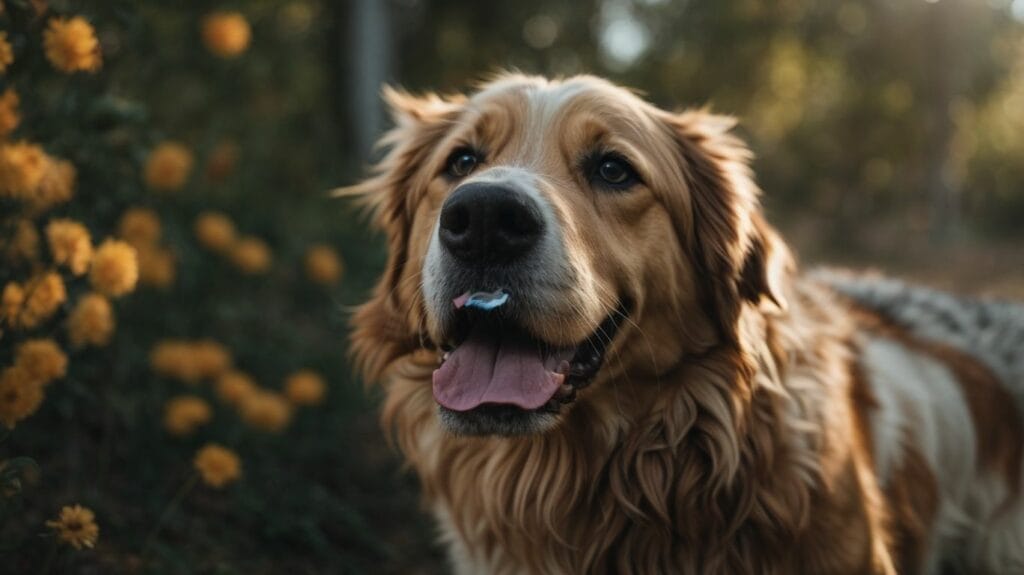Parvovirus is a highly contagious and potentially life-threatening viral infection that primarily affects puppies. However, there is a common misconception that adult dogs are immune to this disease. In reality, adult dogs can indeed contract parvovirus, although they are generally less susceptible than young puppies. Understanding the risks and knowing the signs and symptoms is crucial for early detection and effective management of the infection.
Parvovirus is caused by the canine parvovirus type 2 (CPV-2) and is transmitted through contact with contaminated feces, soil, or surfaces. This virus is particularly resilient and can survive in the environment for an extended period. Adult dogs can become infected if they come into contact with the virus and have not been vaccinated or have a weakened immune system.
Recognizing the signs and symptoms of parvovirus in adult dogs, such as vomiting, diarrhea (often bloody), lethargy, loss of appetite, and dehydration, is essential for seeking prompt veterinary care. Early diagnosis through laboratory tests can confirm the presence of the virus.
Treatment for parvovirus in adult dogs typically involves a combination of medical interventions and supportive care. Aggressive fluid therapy, anti-nausea medication, antibiotics, and other measures are used to manage the symptoms and support the dog’s immune system.
Prevention is key to protecting adult dogs from parvovirus. Vaccinations, including routine boosters, help to build immunity and reduce the risk of infection. Proper hygiene and sanitation practices, such as regular cleaning and disinfection of living areas, can also minimize exposure. Avoiding high-risk environments, such as dog parks or areas with a known parvovirus outbreak, is recommended. By understanding the risks, recognizing the signs, and taking preventative measures, owners can help keep their adult dogs safe from this potentially devastating virus.
Key takeaways:
- Adult dogs can get parvo: While puppies are more susceptible, adult dogs can also contract the parvovirus. This is especially true for unvaccinated dogs and those with a weakened immune system.
- Signs and symptoms: Adult dogs with parvo may display vomiting, diarrhea, lack of appetite, and lethargy. Prompt diagnosis and treatment are crucial to increase the chances of survival.
- Preventative measures: Vaccinating adult dogs against parvo, maintaining proper hygiene and sanitation, and avoiding high-risk environments can help prevent the spread of the virus and protect adult dogs from infection.
Can Adult Dogs Get Parvo?
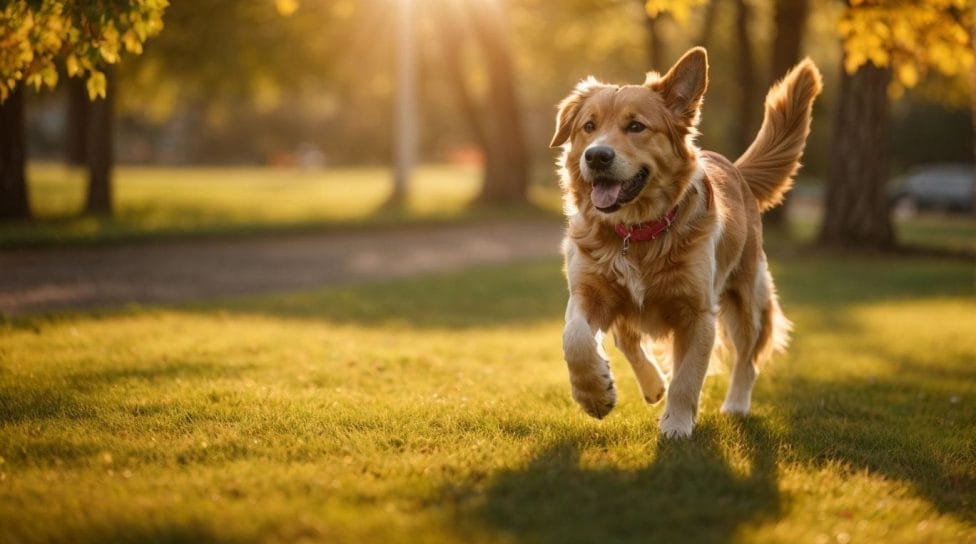
Photo Credits: Petnarnia.Com by Scott Taylor
Explore the surprising truth behind whether adult dogs can get parvo. Unravel the mystery as we dive into the world of Parvovirus infection and how it affects our furry companions. Discover the key factors at play and gain a better understanding of the risks involved. Let’s uncover the facts and separate myth from reality when it comes to parvo and adult dogs.
Understanding the Parvovirus Infection
Understanding the Parvovirus infection is crucial for dog owners to recognize and address this highly contagious and potentially deadly disease. Parvovirus is a viral infection that primarily affects the gastrointestinal tract and bone marrow of dogs, targeting rapidly dividing cells. It is transmitted through contact with infected feces or contaminated environments. Common symptoms of the Parvovirus infection include severe vomiting, diarrhea, loss of appetite, and lethargy. It is of utmost importance for quick and accurate diagnosis in order to promptly initiate treatment. Veterinarians administer supportive care, including fluid therapy and medication, to alleviate symptoms and boost the dog’s immune system. In order to prevent the spread of parvovirus among adult dogs, preventive measures such as proper hygiene, vaccinations, and avoiding high-risk environments play a vital role.
Signs and Symptoms of Parvovirus in Adult Dogs
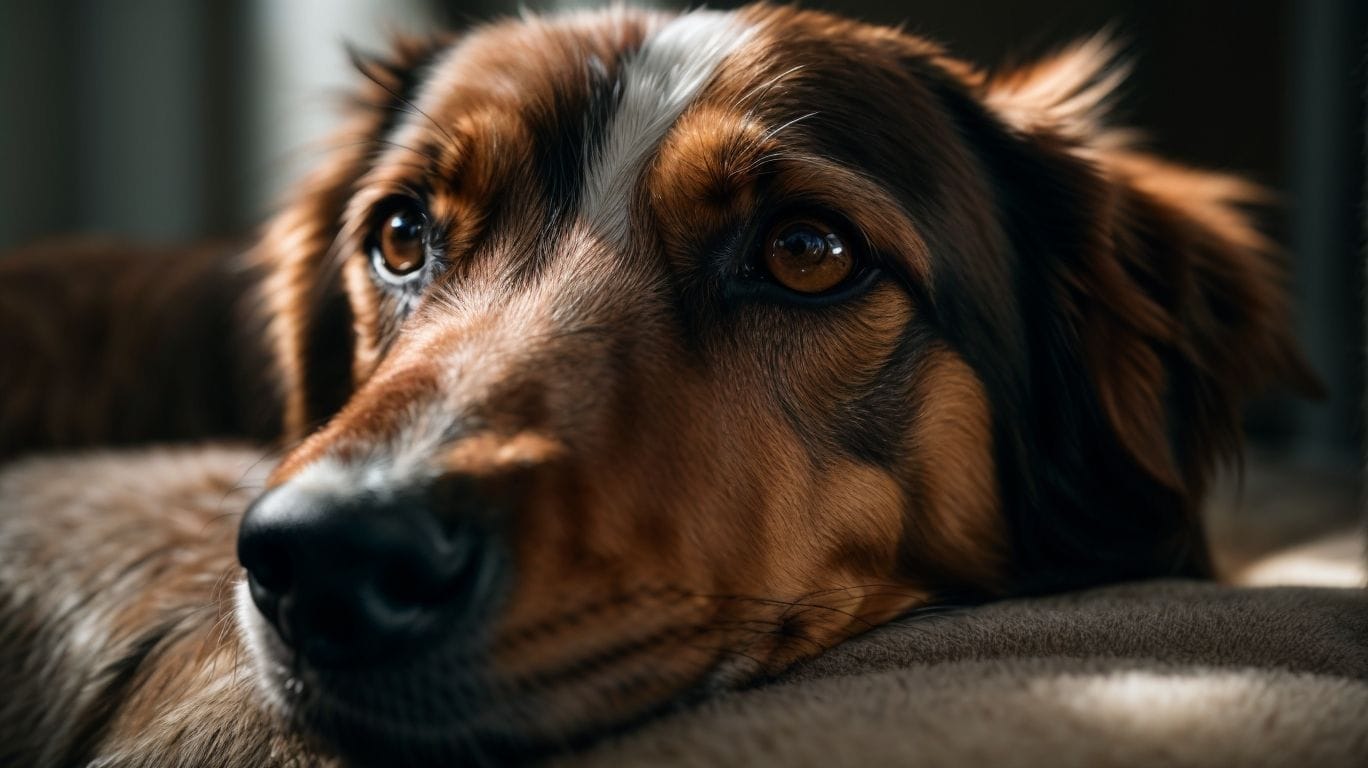
Photo Credits: Petnarnia.Com by Stephen Williams
Recognizing the signs and symptoms of parvovirus in adult dogs is crucial for early detection and treatment. Common symptoms of parvovirus in adult dogs include vomiting, diarrhea (often bloody), lethargy, loss of appetite, and fever.[1] In addition, adult dogs with this viral infection may also exhibit dehydration, weight loss, and abdominal pain.[2] If you notice any of these signs and symptoms in your dog, it is essential to seek immediate veterinary care. Remember, early intervention can greatly increase the chances of recovery for your beloved furry friend.
One example that highlights the significance of recognizing the signs and symptoms of parvovirus in adult dogs is the story of Max, an adult dog owned by a concerned pet owner. Suddenly, Max became lethargic and refused to eat. Worried about his condition, the owner promptly took Max to the veterinarian, who diagnosed him with parvovirus. Thanks to the quick action taken by the owner and the expertise of the veterinarian, Max received timely treatment and successfully regained his health. This incident emphasizes the importance of being aware of the signs and symptoms of parvovirus in adult dogs and seeking professional assistance as soon as possible.
Causes and Transmission of Parvovirus
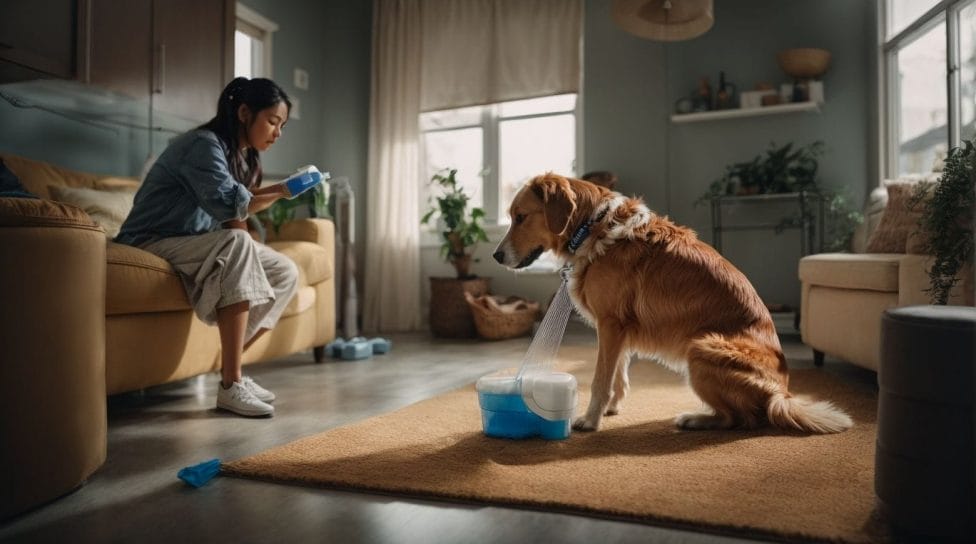
Photo Credits: Petnarnia.Com by Keith Ramirez
When it comes to parvovirus, understanding its causes and transmission is crucial for every dog owner. In this section, we’ll dive into the nitty-gritty details of how parvovirus spreads and the risk factors associated with adult dogs contracting this disease. Get ready to discover the facts and figures that shed light on this contagious infection, ensuring you know how to protect your furry friend effectively.
How Parvovirus Spreads
Parvovirus is a highly contagious virus that spreads through direct contact with infected dogs or their feces. It can also survive in the environment for months, making it even more dangerous. This viral infection can be transmitted through contaminated surfaces or objects like food, bowls, toys, and clothing. Even sniffing or licking each other can transfer the virus indirectly to healthy dogs. Additionally, the virus can hitch a ride on shoes, hands, or any other objects and then be transmitted to unsuspecting canines. Thus, practicing proper hygiene, regularly disinfecting contaminated areas, and isolating infected dogs are vital measures to prevent the spread of parvovirus.
Risk Factors for Parvovirus Infection in Adult Dogs
Adult dogs are susceptible to parvovirus infection due to various risk factors. These risk factors include lack of Vaccination, weakened immune system, and exposure to infected dogs or contaminated environments. Unvaccinated or improperly vaccinated dogs are particularly vulnerable to the virus. Dogs with underlying health conditions or those on medications that suppress the immune system face a higher risk as well. Adult dogs that reside in crowded or unsanitary environments, such as shelters or dog parks, are more prone to contracting the virus. Dog owners must understand these risk factors and take appropriate preventive measures to safeguard their pets.
Fact: Parvovirus is highly contagious and difficult to eliminate as it can survive in the environment for months.
Diagnosing Parvovirus in Adult Dogs
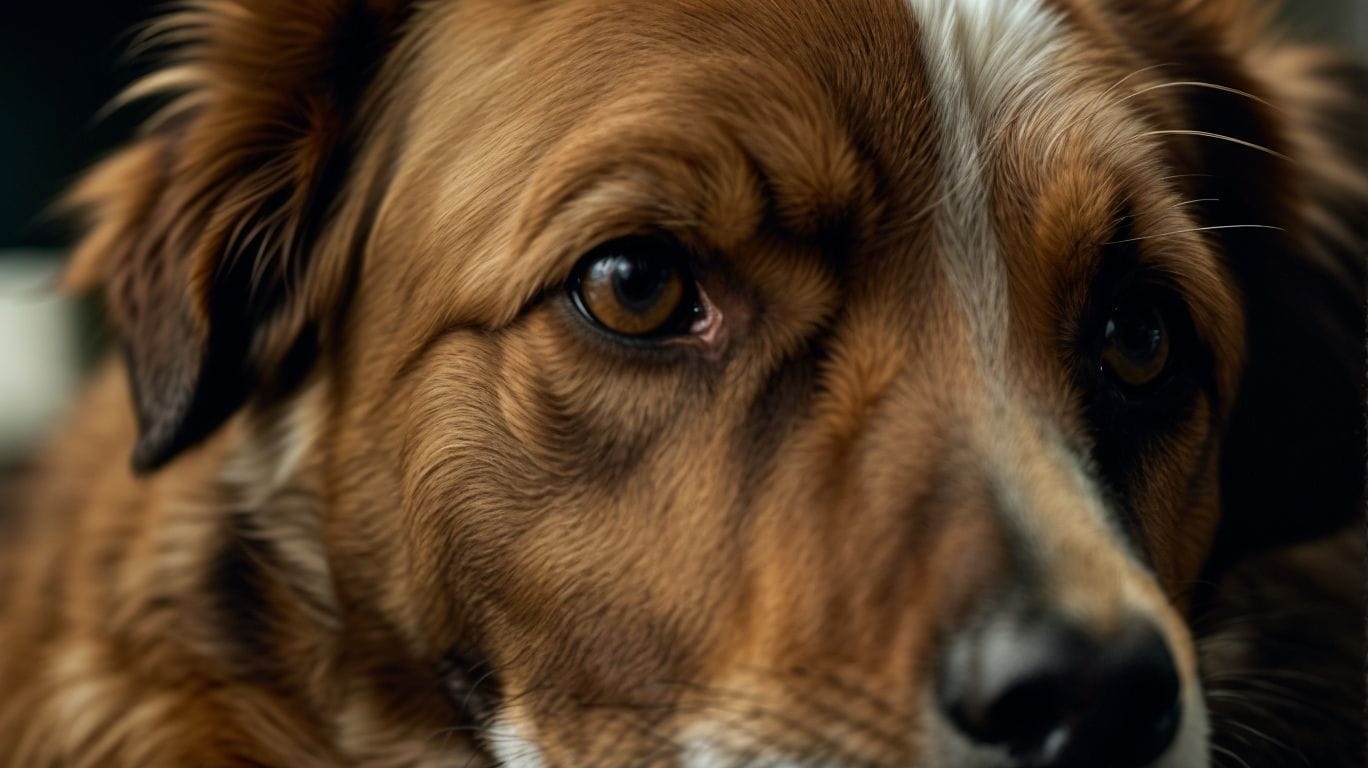
Photo Credits: Petnarnia.Com by Terry Scott
Diagnosing Parvovirus in Adult Dogs can be a challenging task, but successful treatment must begin early. Veterinarians utilize various methods to diagnose this virus, which include physical examinations, blood tests, and fecal tests. During the physical exam, the vet carefully checks for symptoms like vomiting, diarrhea, and dehydration. By conducting blood tests, parvovirus antigens or antibodies can be detected in the dog’s bloodstream. Fecal tests are employed to identify the presence of the virus in the dog’s stool. Timely diagnosis of Parvovirus in Adult Dogs allows veterinarians to administer appropriate treatment and significantly enhance the chances of a full recovery.
Treatment and Management of Parvovirus in Adult Dogs
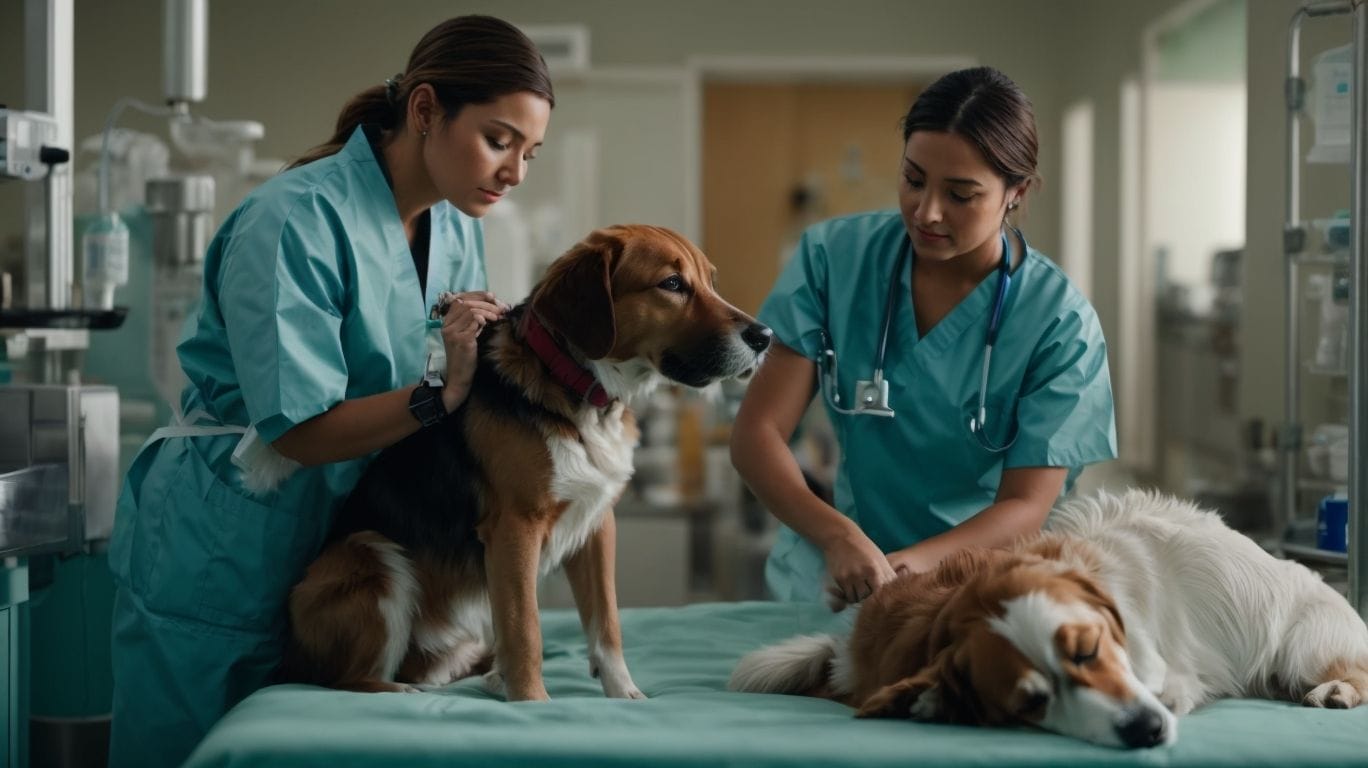
Photo Credits: Petnarnia.Com by Robert Wright
When it comes to the treatment and management of parvovirus in adult dogs, there are several crucial steps to take:
- Isolation: Keep the infected dog away from other dogs to prevent the spread of the virus.
- Fluid therapy: Administer intravenous fluids to combat dehydration caused by vomiting and diarrhea.
- Medication: Use anti-nausea medication and antibiotics to control symptoms and prevent secondary infections.
- Nutrition: Provide easily digestible, high-quality dog food to support the immune system.
- Vaccination: Make sure all dogs are up to date on their Parvovirus vaccinations to prevent future infections.
One true story showcases the importance of swift treatment and diligent management. A dog named Max was diagnosed with parvovirus. Still, with early intervention, including isolation, fluid therapy, medication, nutrition, and Vaccination, he fully recovered and now enjoys a healthy and active life.
Preventative Measures for Adult Dogs
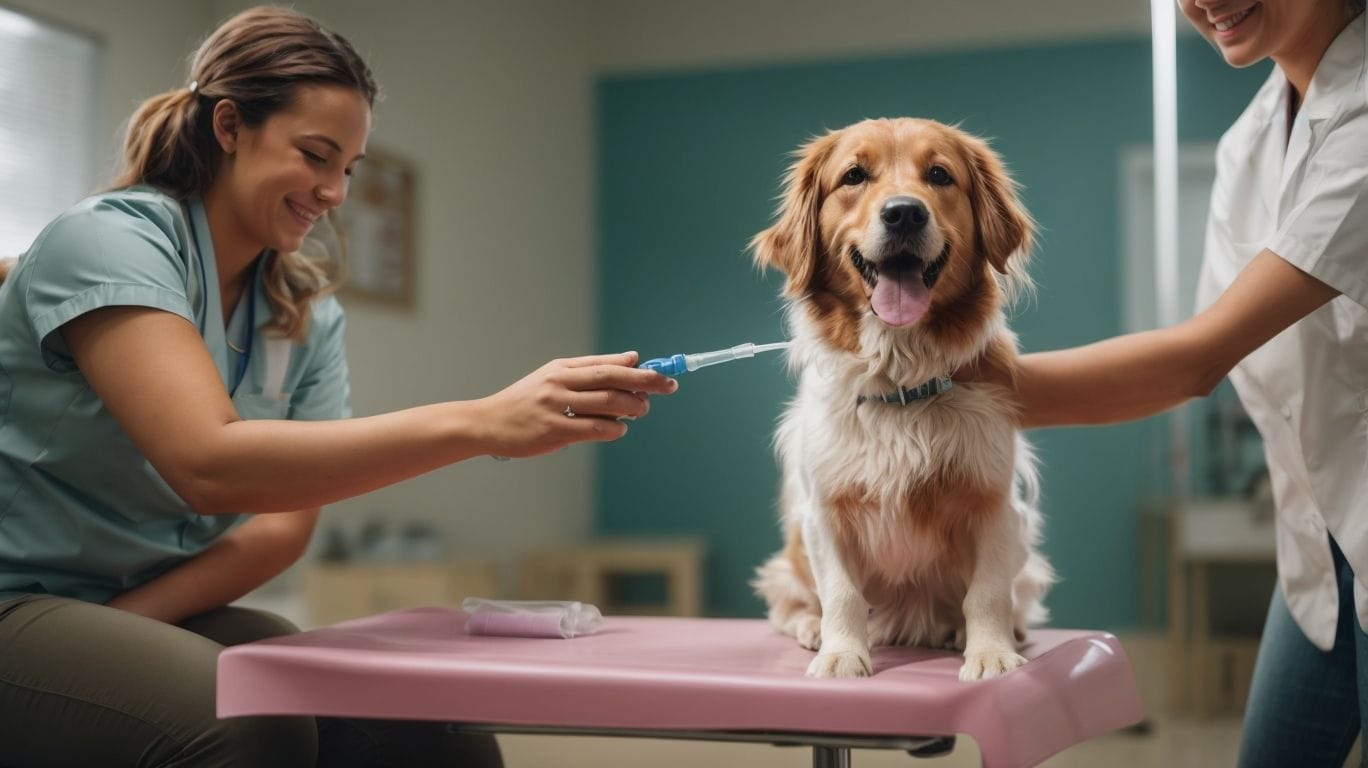
Photo Credits: Petnarnia.Com by Jordan Sanchez
When it comes to protecting our furry friends, we must be proactive in preventing diseases like parvo. In this section, we’ll uncover the essential preventative measures to safeguard adult dogs. From vaccination protocols to maintaining proper hygiene and sanitation and even avoiding high-risk environments, we’ll provide you with the necessary information to keep your canine companion safe and healthy. So, let’s dive right into these crucial preventive measures!
Vaccinations
Vaccinations play a crucial role in protecting adult dogs from the parvovirus and preventing its spread. Here are key points to consider:
- Consult with a veterinarian to determine the appropriate vaccination schedule for your dog.
- Ensure your dog receives the core vaccines, including the parvovirus vaccine.
- Follow the recommended booster shots to maintain your dog’s immunity.
- Regularly update your dog’s vaccinations to provide ongoing protection.
Fact: Vaccinations have significantly reduced the incidence of parvovirus in adult dogs, saving countless lives.
Proper Hygiene and Sanitation
Proper hygiene and sanitation are crucial in preventing the spread of canine parvovirus. Here are some key practices to follow to ensure the safety of your adult dog:
1. Cleanliness: Regularly clean and disinfect your dog’s living area, including bedding, toys, and bowls, to maintain proper hygiene and sanitation.
2. Handwashing: After handling any potentially contaminated items or coming into contact with infected dogs, remember to wash your hands thoroughly with soap and water. This is an essential step in maintaining proper hygiene.
3. Isolation: If your dog is infected or showing symptoms, it is important to isolate them from other dogs. This is a crucial measure to prevent the transmission of the virus.
4. Vaccination: Keep your dog up-to-date on their vaccinations, including the parvovirus vaccine. This is an effective way to ensure their protection against the virus.
5. Avoid high-risk environments: To minimize the risk of exposure to the virus, refrain from taking your dog to areas where parvovirus is more prevalent, such as dog parks or kennels. This precautionary measure is essential for maintaining the proper hygiene and sanitation of your dog.
Jessica, being a diligent pet owner, understood the significance of proper hygiene and sanitation after her neighbor’s dog was diagnosed with parvovirus. She meticulously disinfected her own dog’s items and kept them away from potential sources of contamination. As a result, her dog remained healthy and free from parvovirus, emphasizing the importance of maintaining proper hygiene and sanitation to prevent the spread of this virus.
Avoiding High-Risk Environments
When it comes to preventing the spread of canine parvovirus in adult dogs, one of the most crucial measures is avoiding high-risk environments. These high-risk environments include places where infected dogs have been, such as parks, kennels, and doggy daycares. To minimize the risk of exposure to the virus, it’s important to steer clear of these areas. In addition to avoiding high-risk environments, practicing good hygiene and sanitation plays a vital role in preventing the transmission of the virus. Regularly disinfecting and cleaning your dog’s living space, toys, and food bowls can significantly help reduce the chances of infection. By incorporating these preventative measures, you can effectively keep your adult dog safe from parvovirus.
Some Facts About Can Adult Dogs Get Parvo:
- ✅ Adult dogs can get parvo if they have not been vaccinated or have weak immune systems. (Source: A-Z Animals)
- ✅ Canine parvovirus is highly contagious and can be transmitted through direct or indirect contact with infected dogs or contaminated objects. (Source: A-Z Animals)
- ✅ parvovirus mainly affects the stomach and small intestines, causing digestive issues and damaging the gut barrier. (Sources: Vetmed Illinois, A-Z Animals)
- ✅ parvovirus can be difficult to eradicate and has a long half-life in the environment, making cleaning and sanitizing important to prevent its spread. (Sources: Vetmed Illinois, A-Z Animals)
- ✅ Vaccination is crucial for preventing parvo in adult dogs, along with puppies, and regular boosters should be administered according to the recommended schedule. (Sources: Vetmed Illinois, A-Z Animals)
